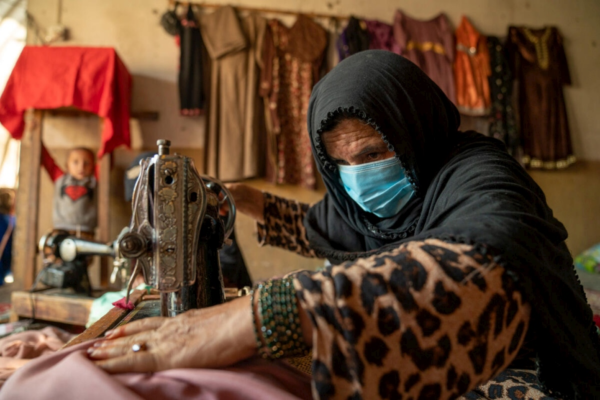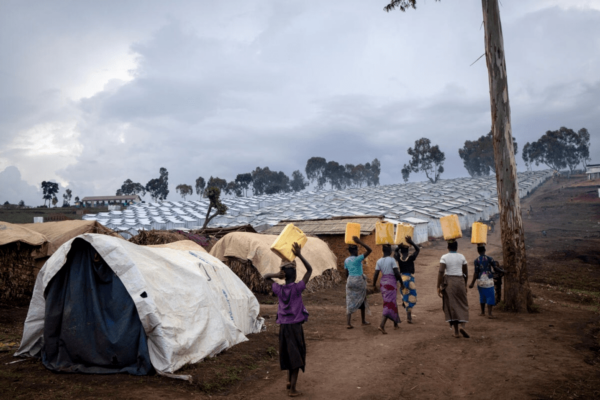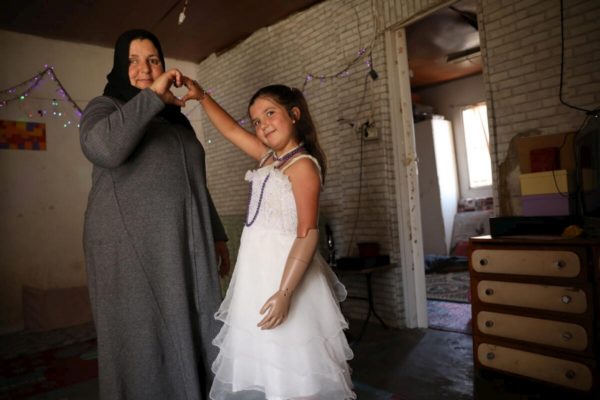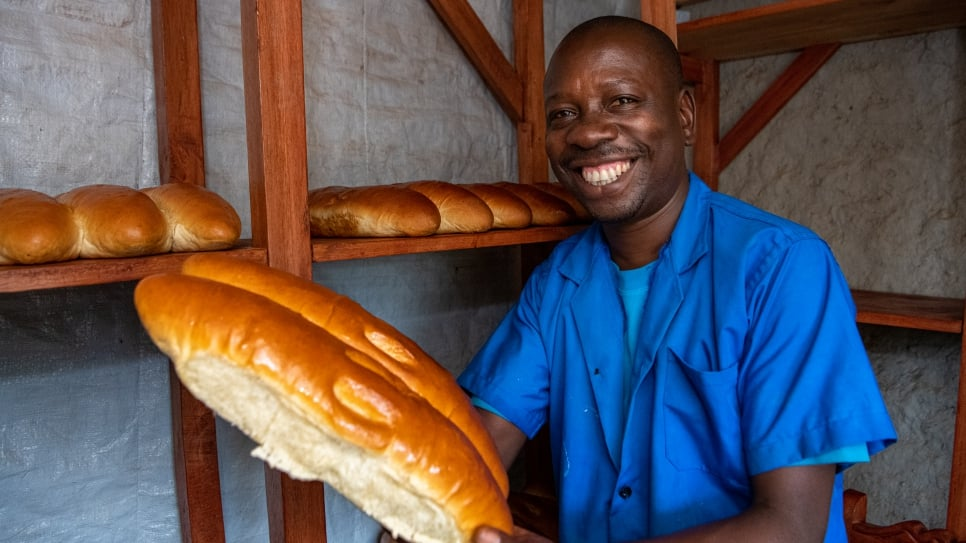
Cadet Kavugwa, a baker and a refugee from DR Congo poses with his freshly baked bread at his home bakery in Nyankanda refugee camp. © UNHCR/Samuel Otieno
A Congolese baker is providing daily bread for his fellow refugees and local Burundians, an income for his family, and dignity for himself.
By Cedric Kalonji in Nyankanda refugee camp, Burundi | 26 January 2023
“My bread is the best in the camp and for miles around!” says Kavugwa Shebulike Cadet with a proud smile. “When people taste my bread, they say, ‘Now this is bread!’, and always come back for more.”
Shebulike was living in Uvira, in the east of the Democratic Republic of the Congo when armed men invaded his home one night. “They shot me and left me for dead before leaving, taking all my money and valuables,” he says. “They also stabbed my wife in the arm.”
A subsequent attempted attack just weeks later proved the final straw, and Shebulike decided it was time for his family to leave the violence and lawlessness behind them.
“My bread is the best in the camp and for miles around!”
“We fled in the middle of the night and were able to cross the border after walking for several hours, fear in our stomachs, hands and pockets empty,” he says. Shebulike has since settled in Nyankanda refugee camp, in eastern Burundi, home to around 12,000 Congolese refugees.
A few months after arriving in Burundi, Shebulike realized that he needed to provide for his wife and seven children and keep himself busy, so he fell back on his profession as a baker. “Rather than sit idle and depend entirely on the help we receive from the UN Refugee Agency and other humanitarian organizations, I found it useful to roll my sleeves up and get to work on the thing I know best,” he says.
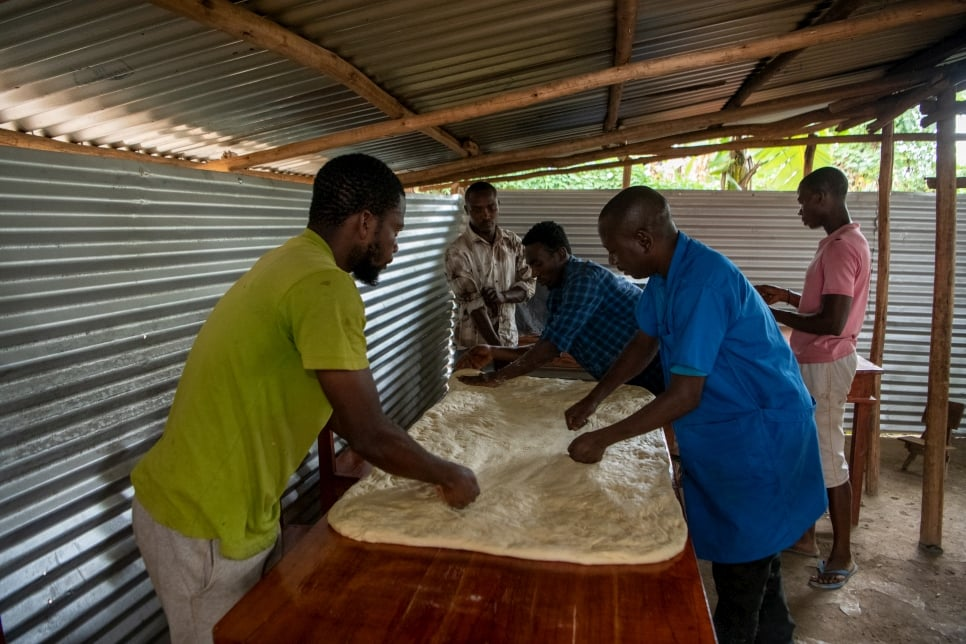
Shebulike and his employees and trainees prepare dough at his bakery in the camp. © UNHCR/Samuel Otieno
Shebulike scraped together all his savings – amounting to just 40,000 Burundian francs, or US$20 – and borrowed a further US$40 from a friend. Together, it was enough to buy sufficient flour, oil, water and yeast to bake his first six-kilogramme batch of fresh bread.
It did not take long to find customers and soon his reputation spread beyond Nyankanda camp. “We have loyal customers as far as Ruyigi, more than 10 kilometres from the camp,” he declares.
With financial support from UNHCR, the UN Refugee Agency, through its partner RET International, Shebulike has expanded his operation, hiring three apprentices and increasing production to 50 kilogrammes a day, using a new larger capacity oven, cooking equipment, and ingredients.
Shebulike insists he is just getting started with his bakery business. He hopes to increase production still further and win over more customers, but lack of access to electricity and restrictions on the movement of refugees are obstacles. UNHCR is advocating for connecting Burundi’s refugee camps to the national electricity grid, and is aiming to secure expanded refugee access to economic opportunities outside the camps.
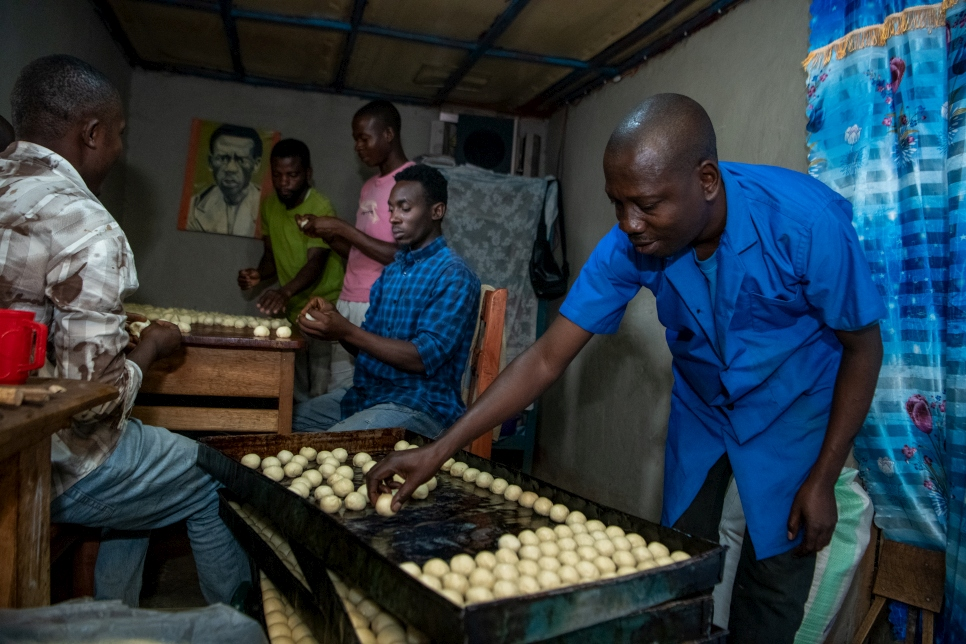
Shebulike would like to expand his business, but lack of access to electricity in the camp and restrictions on refugees’ movements are obstacles. © UNHCR/Samuel Otieno
For Shebulike, baking is about more than just his livelihood, it represents professionalism and skill, freedom and independence. “Being a refugee is not a handicap. It is not the end of the world. I am living proof that you can be a refugee and accomplish great things,” he says. “I don’t know of any refugee who wants to stay in a precarious and dependent situation indefinitely.”
Visits to the region last year by UN High Commissioner for Refugees, Filippo Grandi, and by Deputy High Commissioner Kelly T. Clements, highlighted the underfunding of the response to the situation for refugees in Burundi, and called for increased donor support for refugees such as Shebulike, who need just a little help to make a big difference to their families, their fellow refugees, and their host community.
Originally published by UNHCR on 26 January 2023.



